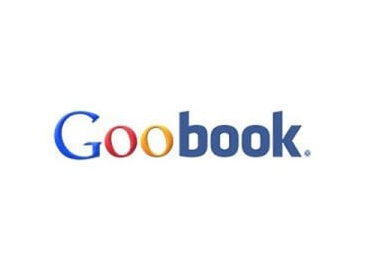How Google and Facebook could pay for news: Competition watchdog sets out options for publishers, including a ‘collective boycott’
The competition watchdog has laid out potential frameworks and models which would enable news publishers to be compensated by the likes of Facebook and Google for the use of their content.
A concepts paper released this morning sets out various potential methods for levelling the playing field between local publishers and the global tech giants.
Perhaps the most radical potential course of action put forward by the Australian Competition and Consumer Commission (ACCC) is a ‘collective boycott’ which “may encourage each of Google and Facebook to offer news media businesses more appropriate remuneration for the use of their content”.



Collective boycott – I just fell on the floor laughing.
What if Google and Facebook stop indexing news from Australia or allowing posting of links to Aussie news companies? They’d be absolutely screwed.
I have ordered a lorry load of popcorn, this will be hilarious.
Also ordered some more sanitiser as my head will likely be in my hands a lot of the time.
agree 100% @Anonymous
This tired old argument from publishers that Google and FB should be paying them for links has been doing the rounds for years, and the logic behind it is as flawed now as it has always been. Publishers need FB and Google (for the very significant traffic they send which Pubs can then monetise) far more than the tech platforms need them or their content. It would make more sense for the tech platforms to be charging Publishers for the traffic they send them — just as they charge advertisers for traffic.
If Publishers really feel their content is so valuable to the tech platforms, then It would be very easy to effectively withhold their content/headlines/links from these platforms by blocking Google from indexing their sites, and by not posting links to their content on FB. It would be a minor blip for G and FB, but would have a massive negative impact on the publishers.
@anonymous when you say “they’d be absolutely screwed” you mean the traditional “news” outlets, right?
Yes, the news outlets. I think ALL of them willingly use Google Ad Manager and Google Analytics 360 so it would be interesting to watch them transition temporarily off those to, er, whatever!
If the Major Media companies believe that:
1. The Tech Platforms drive Ad Revenue by attracting Users to their site by offering both SEARCH and NEWS links to their CONTENT and
2. There is no VALUE to them in receiving the Users / Audience to their site that come through this avenue (instead of coming ‘Direct’ and thru other affiliated / organised means)
…then the simplest solution would be:
1. To get the Tech Platforms to EXCLUDE all SEARCH and NEWS results for any Media Publisher who wishes to be excluded
2. Self-opted-out Media Publishers to build their direct audiences further and NOT receive any compensation from the Tech Platforms
3. ANY Media Publisher (no matter what size) that DOES see value in having their content included in SEARCH and NEWS results would automatically still be included in the Tech Platforms offering
This logic belies the claim from Mainstream Media Publishers that the Tech Platforms should help fund their ‘quality’ journalism because they are profiting from it. The above solution takes this ‘profiting’ away from the Tech Platforms – and will leave the Mainstream Publishers with smaller audiences (in the medium term) AND still the same issues of trying to compete against the Tech Platforms for online Ad Revenue……
Agreed – As much as I want a strong local media, I can’t for the life of me see what the endgame for publishers is. If the endgame is that the government decides to enforce fee-for-content, watch how quickly local publishers die once their domains are no longer indexed.
Given the ridiculousness of these proposals, I’m surprised they didn’t include an additional one: maybe the publishers should engage in collective content warfare and saturate the country with opinion pieces claiming Bing is superior to Google…?
This is a complete nonsense – if you boycott google that people will get news from overseas. Internet is a delicate ecosystem of relationships and regulating on the scale of Australia is going to be near impossible. What we need to recognize as an industry – consumption of news has drastically changed in its nature and publishing need to expedite its evolution.
It’s extraordinary how this process has gone off the rails. How can you spend so much time and money trying to understand an industry, and then get it so fundamentally wrong.
It’s clear that Google & FB have extrordinary powers, and outdated rules and regulations aren’t working. However, to fundamentally misundertand how the internet works and try to force through misguided ideas, who’s only common thread is advantaging a small number of major media players in the country, is crazy.
Is this the competition regulator telling competitors to form a cartel and collectively bargain?
Agree with comments. Seems clear that the proponents of these options from media, government and competition watchdog have a serious lack of digital and SEO literacy?